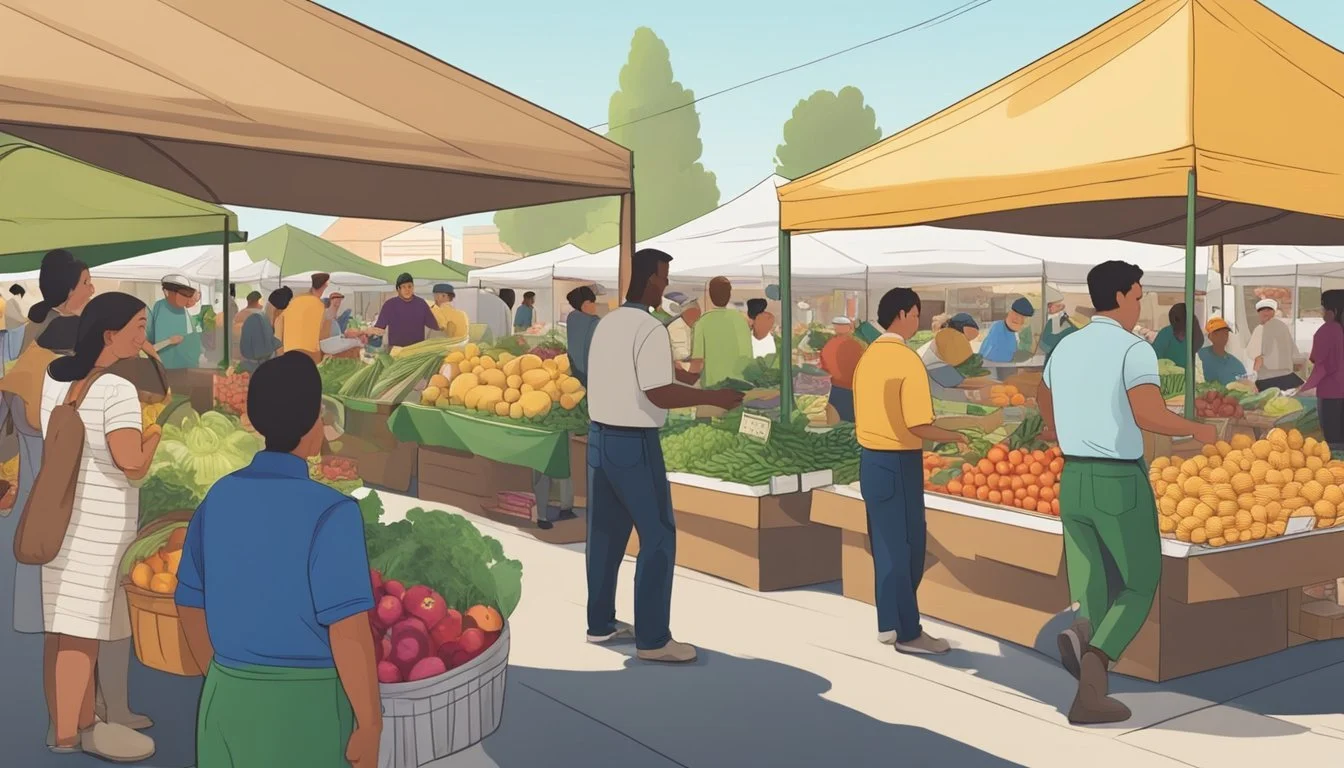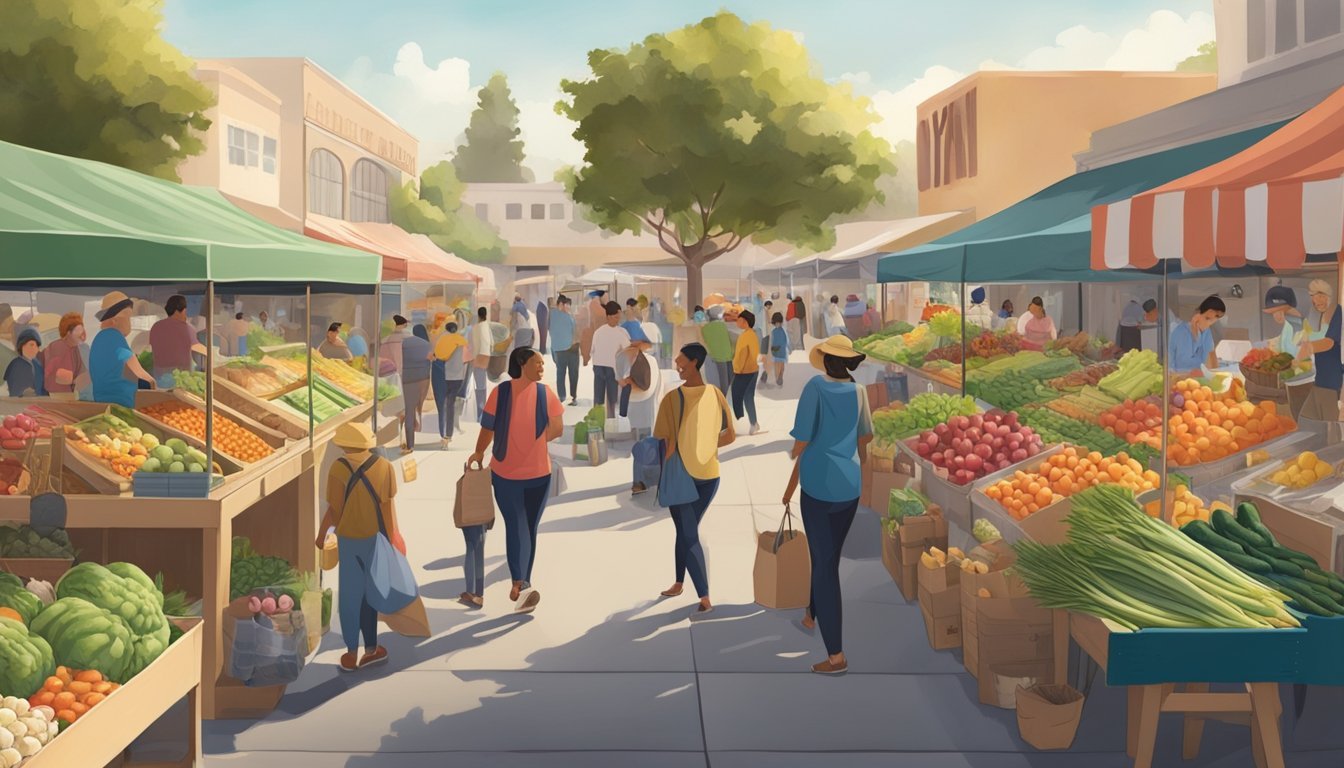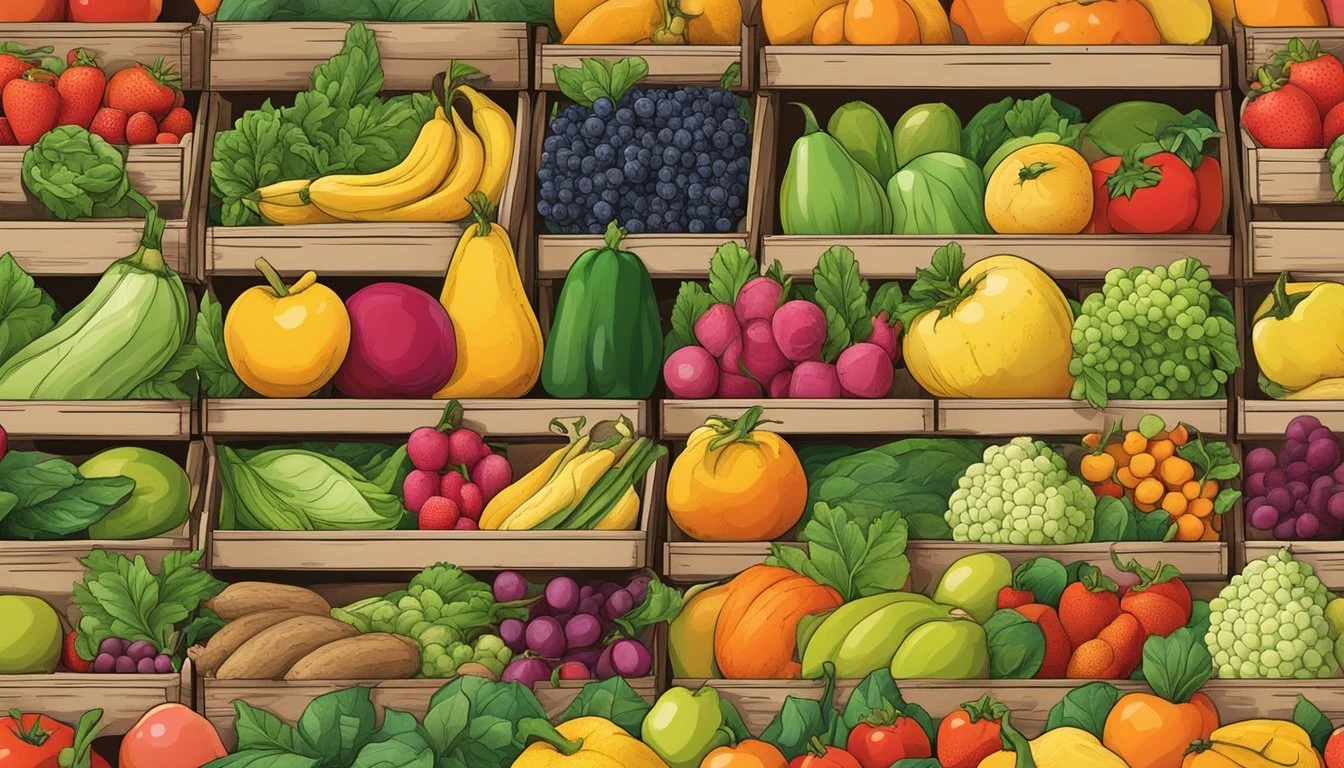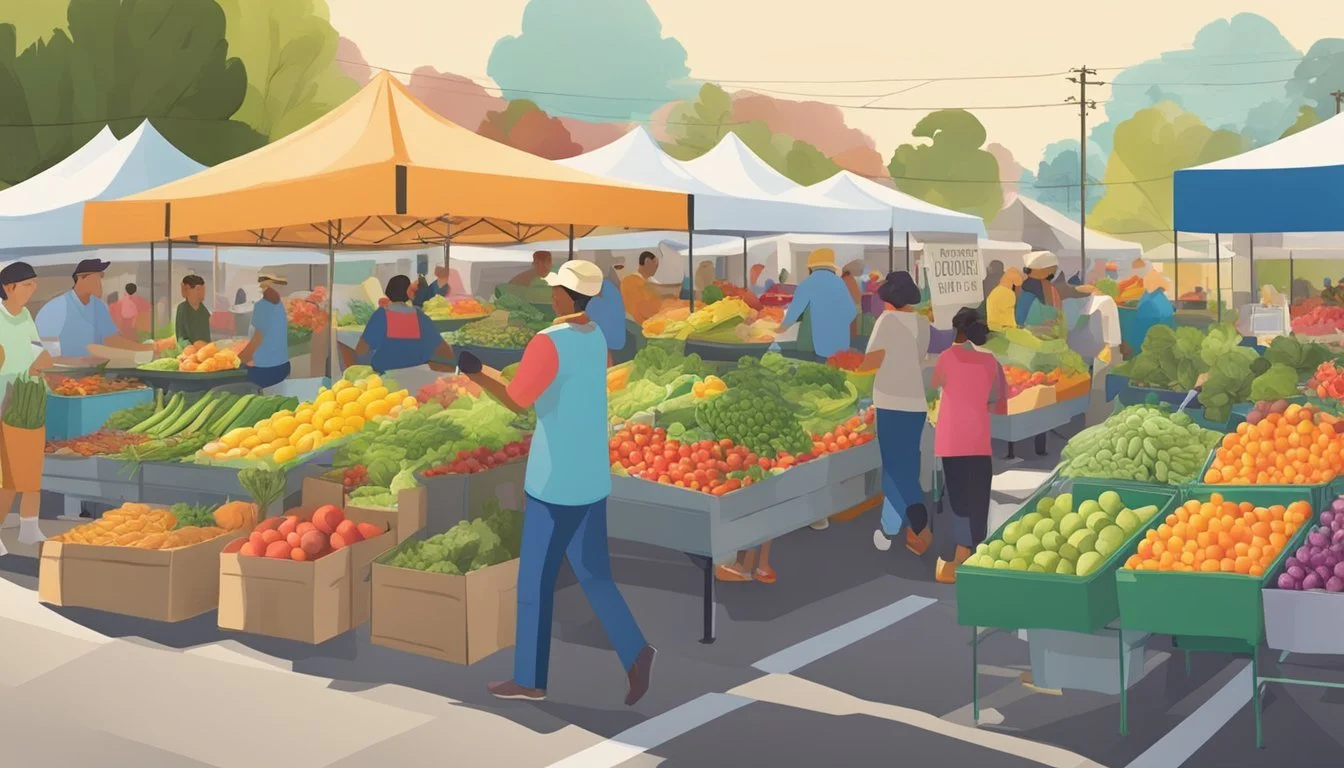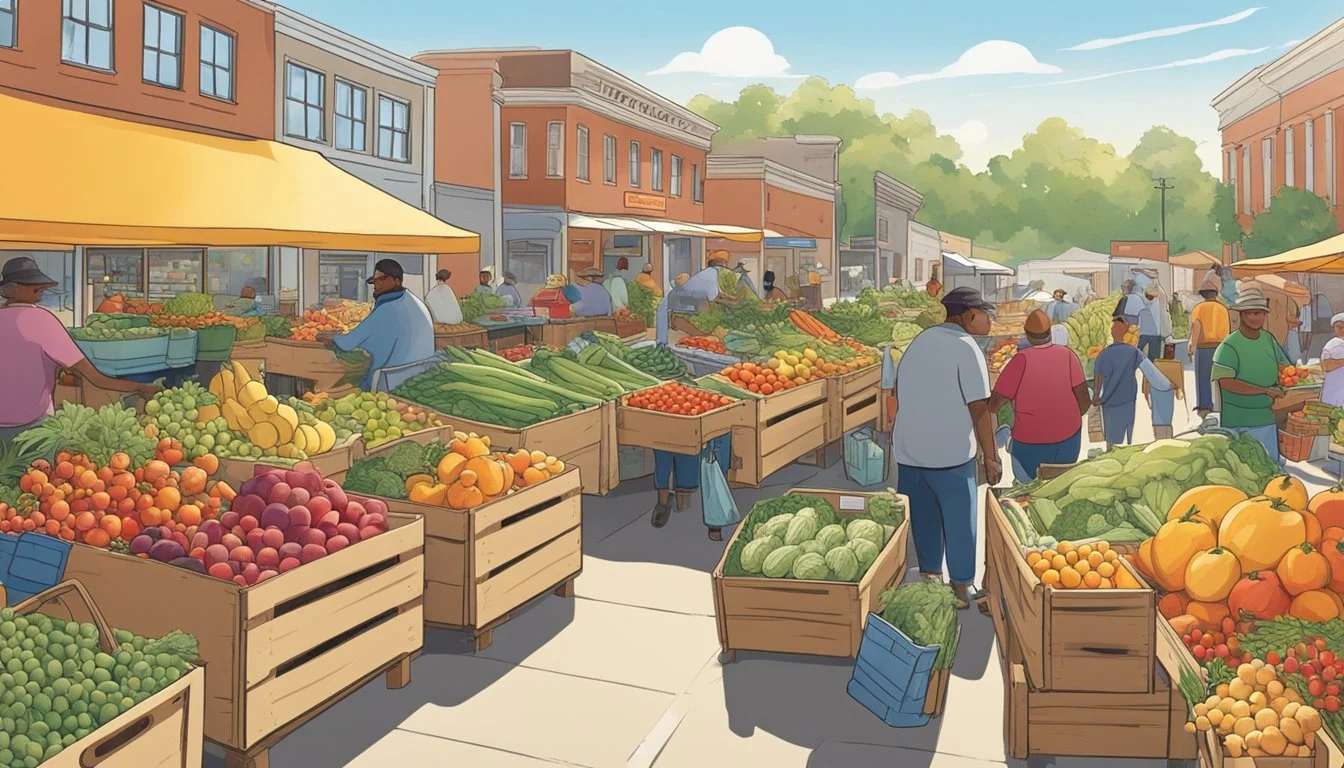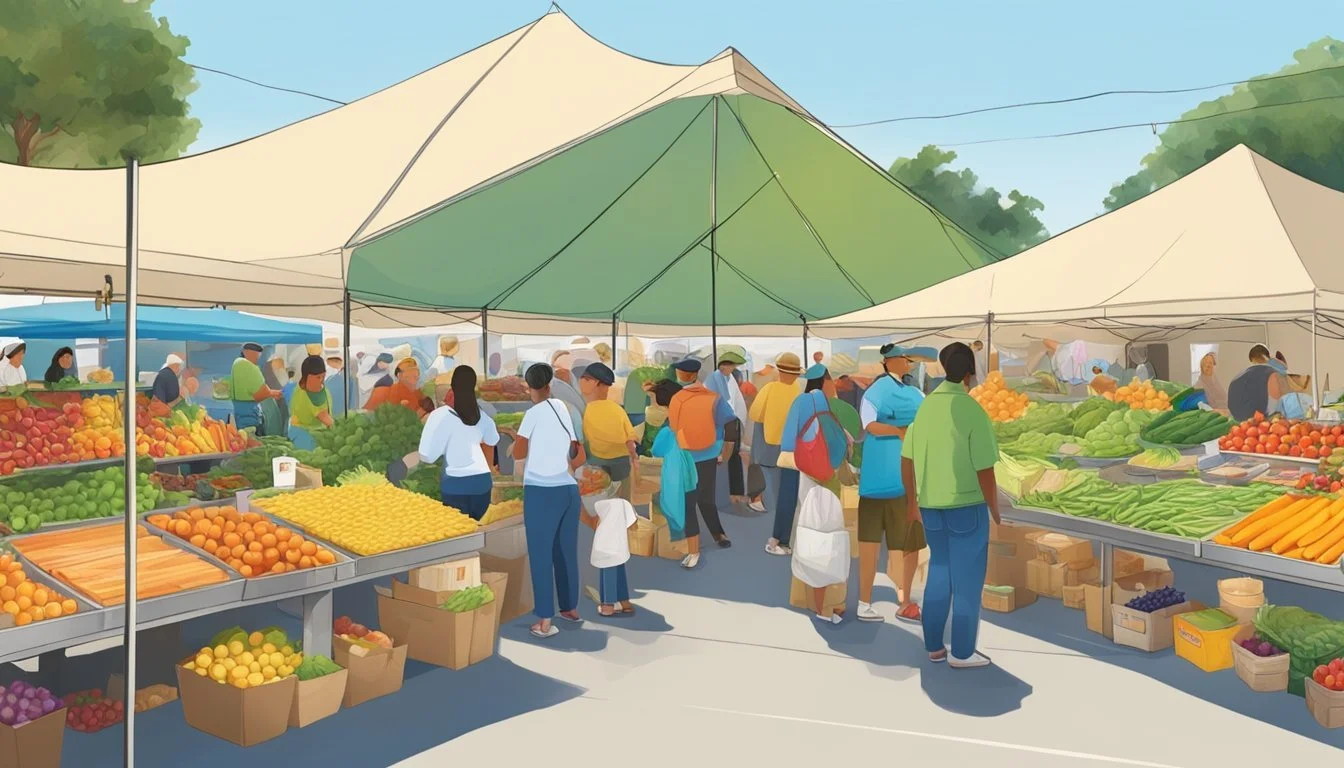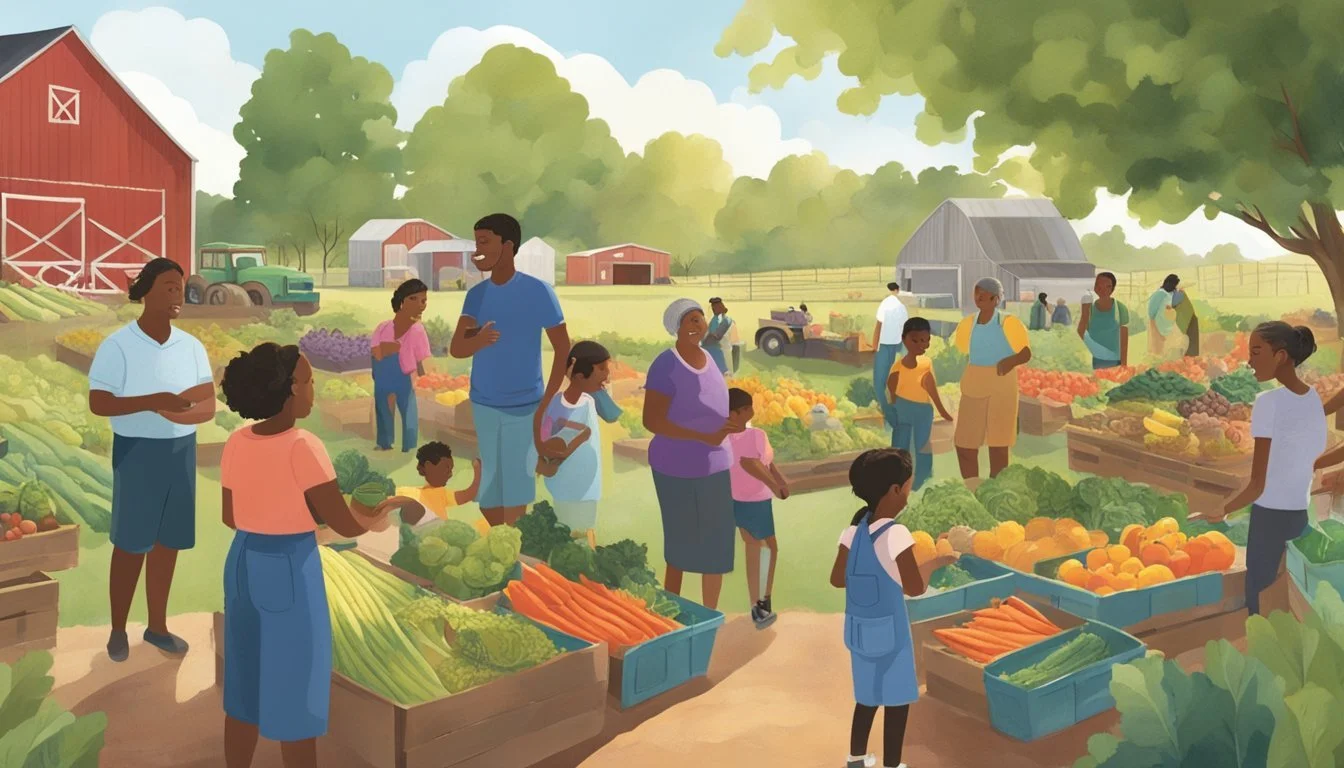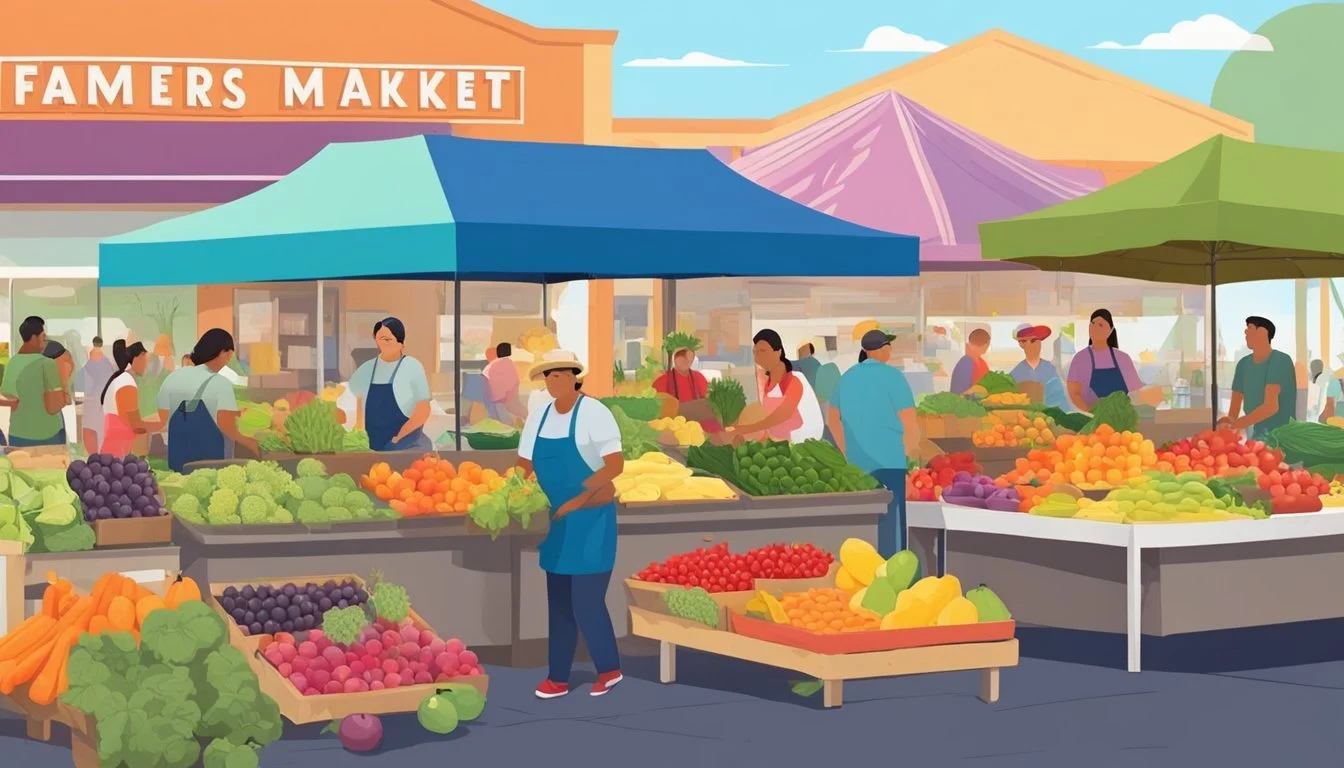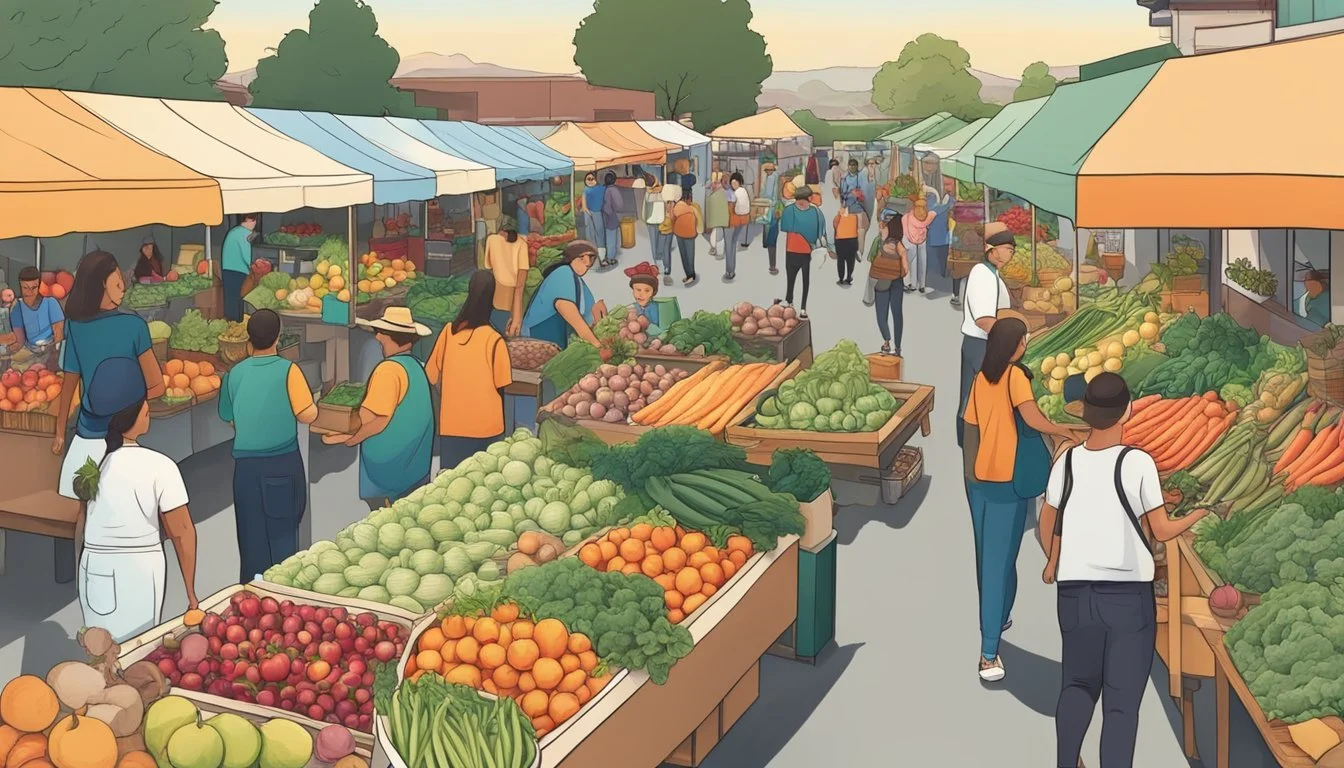Community Supported Agriculture (CSA) in Downey, CA
Benefits and Local Opportunities
Community Supported Agriculture, commonly known as CSA, offers residents of Downey, California, a unique way to purchase locally grown produce directly from farmers. Through purchasing a share of the harvest, consumers become members of the CSA, effectively investing in their local agriculture. This model not only secures a source of fresh, seasonal produce for members but also fosters a stronger connection between consumers and the source of their food, supporting the local economy and farmers.
The concept of a CSA is founded on mutual benefit where the risks and rewards of farming are shared. As members pay for their produce in advance, farmers gain financial security and are better able to plan their crop rotations and harvests. The direct-to-consumer approach embodied by CSAs creates a structure where the quality and origin of the food supply are transparent, building trust and community cohesion.
In Downey and surrounding areas, a CSA membership promises more than just weekly or bi-weekly deliveries of fruits and vegetables. It's a commitment to sustainable practices, an investment in local agriculture and an opportunity to enjoy the bounty of what the land can offer. From fostering environmental stewardship to promoting healthier lifestyles, CSAs serve as critical pillars in developing more self-reliant and resilient communities.
Understanding CSA
Community Supported Agriculture represents a transformative approach towards purchasing local food. This section breaks down its foundational history, operational model, the reciprocal benefits for members, and its profound impact on promoting sustainable agricultural practices.
History of CSA
Community Supported Agriculture, abbreviated as CSA, has roots in the early cooperative movements of the 1960s and 1970s, stemming from a desire to forge a closer bond between farmers and consumers. The first official CSA in its current form began in the 1980s in the Northeastern United States, offering a more sustainable, equitable approach to food production and distribution.
CSA Model Explained
The CSA model operates on a premise of shared risk and reward between local farmers and consumer members. Individuals purchase a "share" — a portion of the farm's output — granting them regular allotments of fresh produce throughout the growing season, typically through a weekly delivery. Membership guarantees farmers upfront capital and provides a stable market for their harvests.
Benefits of Joining a CSA
Joining a CSA extends beyond acquiring fresh, seasonal food; it's an investment in one's health and local community. Members often enjoy:
Diverse, farm-fresh produce: Seasonal boxes often contain a variety of organic fruits and vegetables.
Direct farmer support: Payments help small-scale farmers with the cost of inputs and labor.
Food transparency: Members know where and how their food is grown.
Role in Sustainable Agriculture
CSAs are instrumental in fostering sustainability within the food system. By directly engaging with local farmers, members support:
Sustainable farming practices: Many CSA farms employ organic or biodynamic methods, reducing the environmental impact of agriculture.
Short supply chains: Local distribution minimizes transportation emissions, bolstering sustainability efforts.
Community resilience: CSAs can strengthen local economies and enhance food security by promoting self-sufficiency and diverse crop production.
CSA in Downey, CA
In Downey, California, Community Supported Agriculture offers residents the chance to directly engage with local farming through seasonal produce shares. This relationship not only encourages sustainable farming practices but also has a positive impact on the local economy.
Local CSA Farms
Downey hosts various small family farms participating in the CSA model. These farms provide a wealth of seasonal produce to community members who subscribe to their services. For example, customers can enjoy large, buttery avocados from a renowned Fuerte avocado tree from November through June. By supporting these local CSA farms, consumers foster a closer connection to the source of their food.
Regional Impact
The presence and growth of CSA farms in Downey resonate beyond the city limits. They bolster the regional network of sustainable agriculture in the greater Los Angeles area. This growth not only upholds local agricultural traditions but also reinforces the strength of the local economy by keeping food dollars within the community. Additionally, CSA participation reduces carbon footprints by minimizing the distance food travels from farm to table, thus supporting wider environmental benefits.
Finding a Downey CSA
Locating a CSA in Downey is straightforward for interested consumers. Farmers markets and community events often feature information about local CSA opportunities. Alternatively, potential members can search for local CSA directories online, offering details on various farms, the types of shares available, and subscription information. Being part of a CSA in Downey allows individuals to enjoy fresh, seasonal produce while supporting their community's agricultural foundation.
Membership and Subscriptions
When joining a CSA in Downey, CA, members should understand the types of shares available, associated costs and fees, their responsibilities, and how to manage their subscription effectively.
Types of CSA Shares
CSAs in Downey typically offer various types of shares to accommodate different household sizes and preferences. Full shares are intended for families or individuals who consume a substantial amount of produce, while half shares suit smaller households or those new to the CSA model. Certain farms may also offer customizable shares, allowing members to select their preferred produce based on seasonal availability.
Costs and Fees
Joining a CSA involves purchasing a share, which can cost anywhere from $200 to $600 depending on the type of share and the length of the subscription. Some CSAs charge a one-time membership fee to cover administrative expenses. Additional costs may include delivery fees for home distribution or charges for extra products apart from the standard vegetable box.
Member Responsibilities
Members are typically required to uphold certain responsibilities. These can range from volunteering at the farm to picking up their shares promptly on designated distribution days. Members are also encouraged to stay updated on farm news and crop conditions, as these factors can affect the variety and quantity of produce they receive.
Subscription Management
To manage their CSA subscription, members often have access to an online platform where they can view share contents, pay fees, or update their subscription details. Subscribers can usually opt-in or opt-out of the succeeding season's subscription before a specified deadline, and farms send regular updates to keep members informed about the food production process and the upcoming produce selections.
CSA on the Ground
In Downey, California, the CSA programs are a true amalgamation of agricultural dedication and community involvement, with a focus on sustainability and education.
Farmers' Perspective
Farmers in Downey, engaging in CSA programs, experience a direct relationship with their consumers, which fosters a strong sense of community. They provide fresh, seasonal produce—often including the Fuerte avocados known for their richness from November through June. This sustainable farming approach allows farmers to plan their crop production with more confidence, knowing that they have the community's support.
Community Building
CSA programs in Downey catalyze community building by creating a platform where members invest not only in agriculture but also in relationships. Families become part of the farm's extended community, participating in various community events. This engagement strengthens the rural-urban linkage and ensures a robust sense of community.
Education and Engagement
Key to CSAs in Downey is the element of education and engagement. The Huntley College of Agriculture, for example, runs a program 'Poly Pack' that illustrates the educational commitment to CSA, offering participants insights into their food sources. Engagement in these programs often leads to heightened awareness of sustainable farming practices and encourages a lifestyle cognizant of environmental impact.
By marrying the principles of shared risk and reward, CSAs in Downey cultivate more than crops; they nurture a community vested in the health of their land and their neighbors.
Products and Produce
Community Supported Agriculture (CSA) programs in Downey, California, offer a robust selection of fresh, locally-sourced produce and products. CSA members can expect to receive a diverse array of items, reflecting the region's agricultural richness and commitment to sustainable farming practices.
Variety of Offerings
CSAs in Downey typically provide shares containing a variety of vegetables and fruits. Customers can enjoy staples like:
Vegetables: Tomatoes, peppers, cucumbers, carrots
Fruit: Berries, citrus fruits, apples, stone fruits
Alongside the produce, many CSAs also offer products such as fresh eggs, meat, cheese, and even cut flowers. This variety ensures that members have access to all the essentials for a well-rounded diet.
Organic and Pesticide-Free Options
A considerable number of CSAs in Downey are dedicated to organic farming, providing produce that is grown without synthetic pesticides or fertilizers. They may also be certified organic by relevant authorities. These offerings are ideal for consumers who prioritize:
Pesticide-free vegetables and fruits
Meat and eggs from animals raised without antibiotics or growth hormones
Dairy products from animals fed an organic diet
Seasonal Availability
CSA shares reflect the seasonal nature of farming, meaning the contents of the boxes change throughout the year. This could mean leafy greens and root vegetables in the cooler months, and juicy berries or ripe tomatoes in the summer. The focus on seasonal produce ensures peak freshness and flavor, while also aligning with sustainable agriculture practices.
Advantages and Challenges
In examining the Community Supported Agriculture (CSA) model in Downey, CA, it is evident that it presents a number of advantages for local consumers and communities, while also carrying certain risks and drawbacks that need addressing.
Advantages for Consumers and Communities
Advantages for Consumers:
Access to Fresh Produce: Consumers benefit from regular access to fresh, seasonal produce that is often more flavorful and nutritious.
Health Benefits: The consumption of fresh, locally-sourced produce can contribute to a healthier diet.
Advantages for Communities:
Support for Local Farmers: CSAs provide local farmers with a direct market for their goods, supporting the local economy.
Sustainability: CSAs often use more sustainable farming practices, reducing the overall environmental impact.
Potential Risks and Drawbacks
Risks for Consumers:
Variability in Produce: Consumers may receive different amounts and types of produce depending on the season and farm yield, which can be unpredictable.
Drawbacks for the CSA Model:
Food Waste Potential: If consumers receive more produce than they can use, it may lead to increased food waste.
Financial Risks for Farmers: Farmers bear much of the risk if crops fail, as they have already received payment.
Addressing Challenges
For Sustainable Practices:
Farmers can adopt diversified cropping systems to mitigate the risk of crop failure and ensure a steady supply of produce to CSA members.
To Mitigate Food Waste:
Educating consumers on how to store and utilize a wider variety of produce can help reduce potential food waste.
Tips and Best Practices
In the realm of Community Supported Agriculture (CSA) in Downey, CA, both consumers and farmers can engage in practices that enhance their CSA experience. Consumers can leverage local food directories and cooking tips to maximize the use of their fresh produce, while farmers can focus on sustainable marketing and farming practices to improve yields and consumer satisfaction.
For Consumers
When joining a CSA, individuals should research and make use of local food directories to identify nearby CSA options. This ensures they are getting the freshest produce and contributing to their local economy. Once they are CSA members, they can take advantage of cooking tips and recipes specifically tailored to seasonal produce they receive, which can be a great way to explore new cuisines and improve their culinary skills.
API Integration: Stay informed about the latest offerings and updates from the CSA by integrating with APIs where available, to get real-time notifications on produce availability.
Storage and Preparation: Learn proper storage and preparation methods to prolong the life of the produce and retain its nutritional value.
For Farmers
Farmers should employ effective marketing strategies to attract and retain CSA members. This includes maintaining an updated online presence and utilizing social media platforms to showcase their farming practices and available produce. They should also consider investing in organic fertilizers which can be an important part of sustainable farming, leading to richer soil and healthier crops.
Labor Management: They need efficient labor strategies to ensure all tasks are handled promptly, from planting to harvest, without overworking staff.
Direct Sales Channels: Establishing and maintaining direct sales channels, like farmer's markets and online sales, can help farmers achieve a more stable income and build stronger relationships with their consumers.
Market Trends and Research
The landscape of Community Supported Agriculture (CSA) in Downey, California is evolving, driven by recent studies, advancements in technology, and projected growth trends.
Recent Data and Studies
Recent studies have provided valuable insights into the CSA market. Data from the USDA and independent research has indicated a steady increase in consumer participation in CSA programs. In Downey, local market managers note that subscribers value the sustainable agriculture practices CSAs support. Findings highlight a preference for organically certified produce, aligning with national observations reported in various academic publications.
Technological Updates
In the realm of technology, CSA programs are beginning to leverage digital resources to optimize their operations. Market managers in Downey employ marketing strategies through online platforms, with some incorporating APIs to streamline the subscription and distribution processes. New software solutions facilitate better network management, connecting farms directly with their customers and improving overall satisfaction.
Growth and Expansion Projections
The outlook for CSA in Downey is promising. Projections based on USDA reports and market analysis predict a considerable expansion of CSA within the next five years. The marketing efforts and the adoption of technologies have increased accessibility for consumers, leading to a broader customer base. This growth signifies a positive trend towards a more sustainable agriculture network in the region.
Resources and Directories
For those in Downey, CA, desiring to engage with local agriculture, there are numerous resources and directories available to facilitate connections with Community Supported Agriculture (CSA) programs.
Local Food Directories offer comprehensive listings of CSAs that service the Downey area. These directories act as a bridge between consumers and local farms, offering individuals a subscription-based method to receive fresh, seasonal produce directly from their nearby farmers.
Individuals looking to subscribe to these services can consult the CSA Farm Directory. This directory provides details on various CSAs, their farming practices, as well as their product offerings. It's a beneficial tool for anyone seeking organic and locally-sourced food options.
For those who prefer digital convenience, APIs are available for market managers and others in the agricultural field to access and share information on CSAs, improving visibility and accessibility.
Moreover, Local Food Networks serve as a centralized point that can offer both resources for CSA members and support to farmers. These networks may organize events, consolidate CSA information, and act as a communication channel for agriculture enthusiasts.
Below is a table highlighting useful resources one might consider:
Resource Description Relevance to Downey, CA Local Food Directories Listings of CSAs based on location and offerings High CSA Farm Directory Detailed information on individual CSAs High API for Market Managers Technological resource for information dissemination Moderate Community Supported Agriculture General insights and details about the CSA model and impact Moderate
Residents of Downey have at their disposal a variety of resources and directories to aid them in participating in local agriculture and fostering community growth through sustainably-minded food consumption.
Conclusion
Community Supported Agriculture (CSA) embodies a sustainable approach to food production and distribution. In Downey, California, CSA initiatives have cemented the bond between local farmers and the community, providing a stream of fresh, locally-sourced produce. This model fosters a reduced carbon footprint, as food travels shorter distances from farm to table compared to conventional food systems.
Advantages of CSAs include:
Enhanced freshness of produce, as the food is grown and harvested within the community.
A lower carbon footprint, contributing to environmental sustainability.
The promotion of local economic growth by supporting local farmers and businesses.
Farmers in Downey who adopt the CSA model typically experience reinforced relationships with their patrons, which can lead to economic resilience. Participation in a CSA also encourages consumers to engage with the source of their food, often leading to a greater appreciation and understanding of plant cultivation and seasonal eating.
Through Community Supported Agriculture, residents of Downey have access to nourishing food while concurrently investing in local sustainability. Individuals who participate in CSAs take an active role in supporting methods of food production that have the potential to be kinder to the planet, and at the same time, contribute to the local economy.

